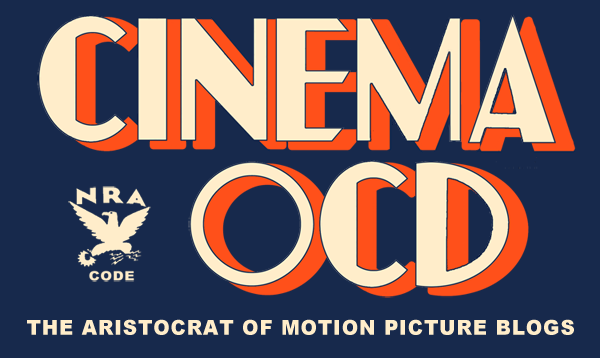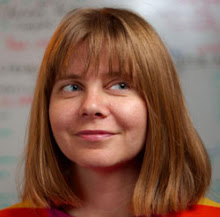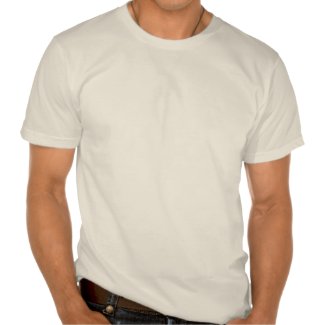 Ann Harding plays a clever independent woman, Joan Colby, whose family has fallen on hard times in the Depression and who feels her age rapidly approaching the "Old Maid" barrier. She concocts a plan to marry a charming playboy, John Fletcher, (William Powell) who has so far avoided the minister like a matrimonial plague. Contrary to her plan to keep emotion out of the business of marriage she inevitably falls in love with her playboy. Were we not introduced to Harding's character first and like her so much we might not be entirely sympathetic to her scheme to force Powell to the alter by purposefully arranging to have her father catch her in his apartment wearing a nightgown. Harding states a plain truth that she doesn't really have any options. She doesn't have the sorts of talent that a respectable lady could use to support herself with and so her business has to be marriage to a man with a future.
Ann Harding plays a clever independent woman, Joan Colby, whose family has fallen on hard times in the Depression and who feels her age rapidly approaching the "Old Maid" barrier. She concocts a plan to marry a charming playboy, John Fletcher, (William Powell) who has so far avoided the minister like a matrimonial plague. Contrary to her plan to keep emotion out of the business of marriage she inevitably falls in love with her playboy. Were we not introduced to Harding's character first and like her so much we might not be entirely sympathetic to her scheme to force Powell to the alter by purposefully arranging to have her father catch her in his apartment wearing a nightgown. Harding states a plain truth that she doesn't really have any options. She doesn't have the sorts of talent that a respectable lady could use to support herself with and so her business has to be marriage to a man with a future.Though the Double Harness of the title refers to a pair of horses yoked side by side as a metaphor for matrimony, it could as easily refer to the predicament that Harding finds herself in. As an attractive young woman of her class, she has had plenty of opportunities to dine with men alone in their apartments and in doing so, to audition for the role of wife. As a respectable young lady, she hasn't taken any of those opportunities, because she hasn't liked any of those men well enough to risk her reputation on them. Her double harness is the damned if she does, damned if she doesn't situation of single women through the ages. In code era films, such a dilemma could not be as honestly stated nor treated as realistically. Joan certainly enjoys going to Flethcher's apartment for weeks before she springs her trap. For a few days she convinces herself that she likes John Fletcher just enough to trick him into that harness. After she falls in love with him, she changes her plan. Now she simply must marry him in order to save him from his lazy, decadent lifestyle. Colby's certain she can do something for him and so manages to rationalize the whole misadventure. Had she married anyone less affable and pliable than a William Powell character, the whole thing would have ended in disaster. She would have nagged him to work and he would have ignored her and eventually come to resent her.
Ann Harding is a very obviously smart woman which comes through in her acting. Sadly, she had almost no post-code career. Like Kay Francis, she took smaller and smaller roles until she retired. It's sad that audiences just didn't want what she offered. Some found her too mannered, and others probably didn't think her quite pretty enough. Certainly comparing her to the other smart, younger actresses of that era,your Myrna Loys, your Jean Arthurs, Ann had a softer more old-fashioned kind of look. (It didn't help that she always wore her hair in a librarian bun). It's too bad because I think she could have been really good in a fast-talking comedy.





3 comments:
I really like this movie. I find Ann Harding quite lovely; (in spite of her school marm hairdo), and William Powell is always a treat to watch. I'm not quite sure why Ann's career faded as it did. She certainly had a fragile, almost childlike quality to her.
This film is definitely better for being made pre-code. The subject is treated much more honestly than it would've been just a few years later. It's been some time since I watched Double Harness and reading your blog makes me want to pop it into the DVD player for another viewing.
The thing I've enjoyed most about watching all these pre-code movies is discovering all these amazing actresses.
I'd watched Double Harness about a year ago and forgot I'd seen it, but then when I started watching it again, I was like oh yeah. This is great. Some movies take a couple of viewings to really come to life in your head. This is one of them, I think.
I too, have discovered quite a few actors and actresses who were pre-code stars and then faded into supporting roles or total obscurity. Ricardo Cortez, Hardie Albright, Irene Purcell, Robert Ames, Winnie Lightner...the list goes on and on.
I thought I knew a lot about movies, having an interest in silent, sound, domestic and foreign. But, to steal a catch-phrase, the pre-code movies are the "Lost Episodes" of Hollywood. Once the code came in, these movies were either stacked way in the back of the film vault or sliced mercilessly by studios and local tv stations. I thank my lucky stars for AFI and TCM to bring these historic documents back to us.
Post a Comment